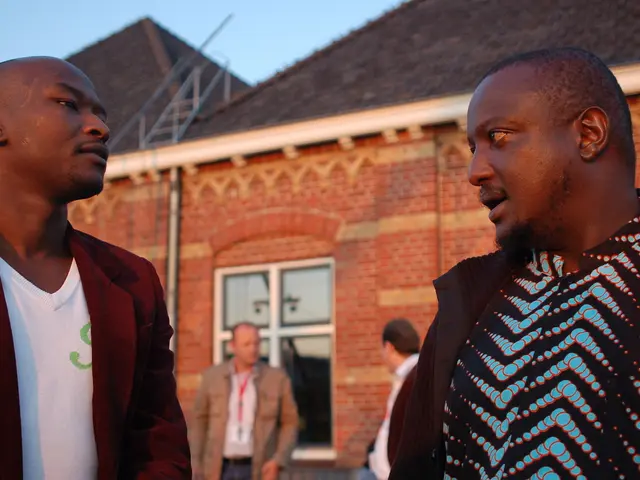Driving to Winning: Markus Villig (Bolt) Recounts His Journey from 5,000 to 8 Billion in the Cutthroat VTC Competition
Bolt founder Markus Villig on his journey from Estonian teen entrepreneur to European ride-hailing champion
By Sébastien Pommier, Investigative Chief
In 2013, a 19-year-old Markus Villig launched Bolt, then called Taxify, a ride-hailing app in Tallinn, Estonia. Today, the company he co-founded with Martin Villig and Oliver Leisalu boasts operations in more than 50 countries and a valuation of over $8 billion.
Villig's journey began with a bug in his car and a curious mind. "I built websites as a teenager, and when my car broke down, I was intrigued by the idea of mapping the city and connecting drivers with customers," says the Estonian billionaire.
After validating his idea through a survey among friends and securing a €5,000 loan from his parents, Villig spent six months coding his vision. Bolt quickly took off in Estonia and expanded to the Baltic countries, Poland, and Western Europe. Although initial French authorities were wary and taxi drivers were resistant, Villig and his team carefully navigated the challenges of local regulations and driver relations.
With France as the company's largest market, Bolt operates in key cities like Paris, Marseille, Nice, Bordeaux, Lyon, and Lille. The company's ambition is to make Paris a priority axis for development. "We have millions of customers here, and this is just the beginning of the story," says Villig.
In the realm of shared mobility, Villig sees the future passing through autonomous cars. "We were the first to launch shared bikes in 2018, and we're bidding for the next tender from the Paris City Hall," he adds. Bolt is also expanding into home delivery and car rental services.
Addressing concerns about account sharing and identity theft among drivers, Villig emphasizes Bolt's automated controls and manual investigations. The company remains committed to complying with regulations and the GDPR.
Villig is also the brains behind "Women for Women," Bolt's 100% female service for promoting safety among young women who travel alone at night. "One of the main requests for feeling safe was that the driver be a woman," explains Villig. The service is currently operating in seven French cities.
When asked about competition with American tech giants like Uber, Villig maintains that Bolt is well-equipped to compete in terms of technology. "We've already expanded our footprint on the African continent and are working towards becoming the leader in Europe," he says.
With Bolt's focus on disrupting traditional transportation models, Villig believes that partnerships and collaboration among tech companies are essential. "We meet with competitors and work together to exchange ideas and insights," he adds.
Villig's vision for Bolt extends far beyond mobility services – he sees the role of entrepreneurs in driving societal change. "I've tried to take an active role in helping my country face the Russian threat by working with politicians and defense force members," he says.
Reflecting on his role as one of Europe's youngest billionaires, Villig remains focused on growth and innovation. "Between 70% and 80% of my wealth is still in the company," he says. He has also invested in about ten funds and the capital of around a hundred European companies each year.
Outside of work, Villig is a passionate chess player and enthusiast. He has even had the opportunity to compete against Magnus Carlsen, the world-renowned Norwegian player. In his leisure time, Villig also enjoys playing padel, a sport similar to tennis, with his brother.
As the global mobility landscape evolves, Villig and Bolt are well-positioned to lead the way, with an unwavering commitment to efficiency, innovation, and sustainable growth.
In the pursuit of expanding Bolt's reach, Villig has expressed interest in venturing into new sectors, such as home delivery and car rental services, demonstrating a clear ambition in diversifying the business.
As technology continues to shape the future of transportation, Villig remains optimistic about the potential of autonomous vehicles and has already prepared Bolt to be at the forefront by launching shared bikes in 2018 and bidding for the next tender from the Paris City Hall.








